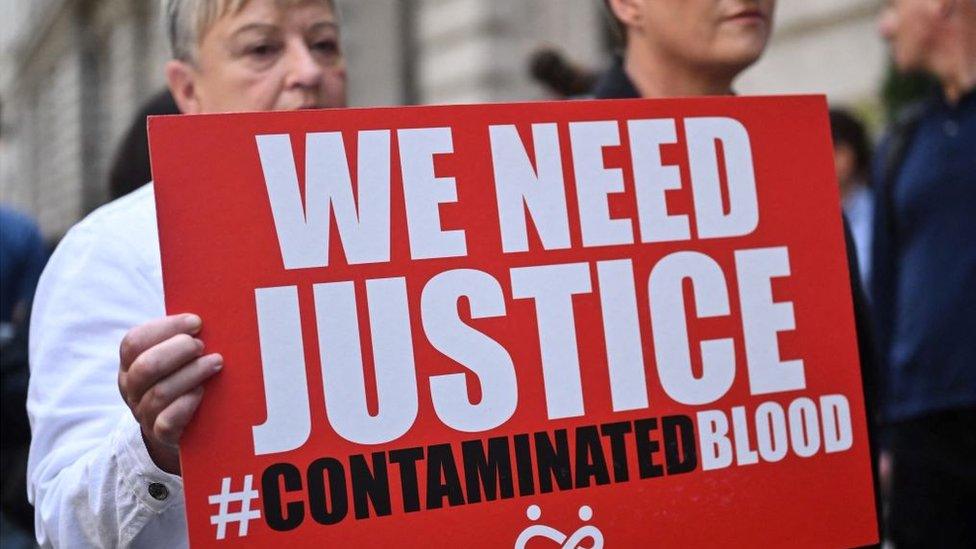Infected blood survivor: Did I kill my wife?
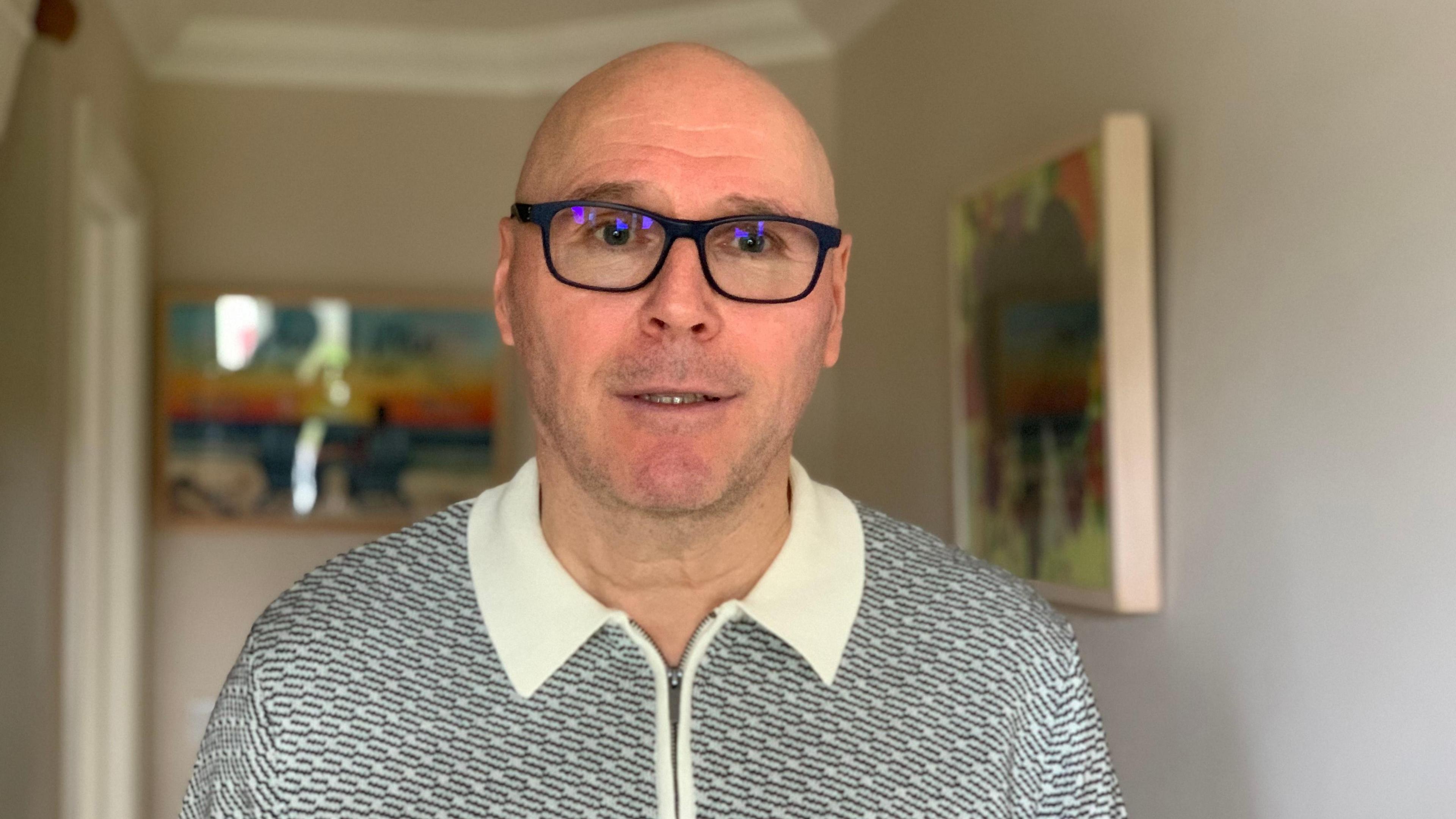
Stephen Smith contracted hepatitis C from a blood transfusion when he was 22
- Published
A man who contracted hepatitis C from a contaminated blood transfusion fears he may have unwittingly infected his wife.
Stephen Smith, whose condition went undiagnosed for 36 years, said he was "destroyed" by the thought he could have passed the infection to his wife Yvonne.
She died from liver cancer, a known side effect of long-term untreated hepatitis C.
Mr Smith, 60, of Redruth, Cornwall, said the impact of the infected blood had "robbed" him of the best years of his life.

Stephen was an athlete before he unknowingly contracted hepatitis C
An independent statutory inquiry was established in 2018 to examine the circumstances in which men, women and children treated by the NHS were given infected blood and infected blood products.
Mr Smith, who contracted hepatitis from a blood transfusion when he was 22, told the BBC that doctors had been unable for many years to correctly diagnose the reason for repeated stomach and back pain he suffered.
But, after he moved from Essex to Cornwall and saw a new GP, he was diagnosed in June 2021.
Mr Smith is one of more than 30,000 people in the UK who have been infected with HIV and hepatitis C after being given contaminated blood products during the 1970s and 1980s.
"How do I feel? Robbed. Absolutely robbed," he said.

Yvonne Smith died from liver cancer in 2012
While the hepatitis C diagnosis provided an explanation, it also raised some troubling doubts.
"The first thing I thought was: 'Have I killed my wife?'" he said.
"Because she died from liver cancer and, if you have hepatitis C you’re more prone to getting cancers, so that went straight to my head and it absolutely destroyed me.”
Yvonne Smith died from liver cancer in 2012.
Liver failure and cancer are known side effects of hepatitis C, external, which can be contracted through sex.
"Even now I've got rid of hepatitis, I do still lie in bed thinking: 'Have I infected anybody out there?'," Mr Smith added.
He said the diagnosis also made his previous behaviour make sense.
"I fell out with my family," he said.
"My first marriage - she divorced me one year after the infected blood, on the grounds of unreasonable behaviour."
Read more on the infected blood inquiry
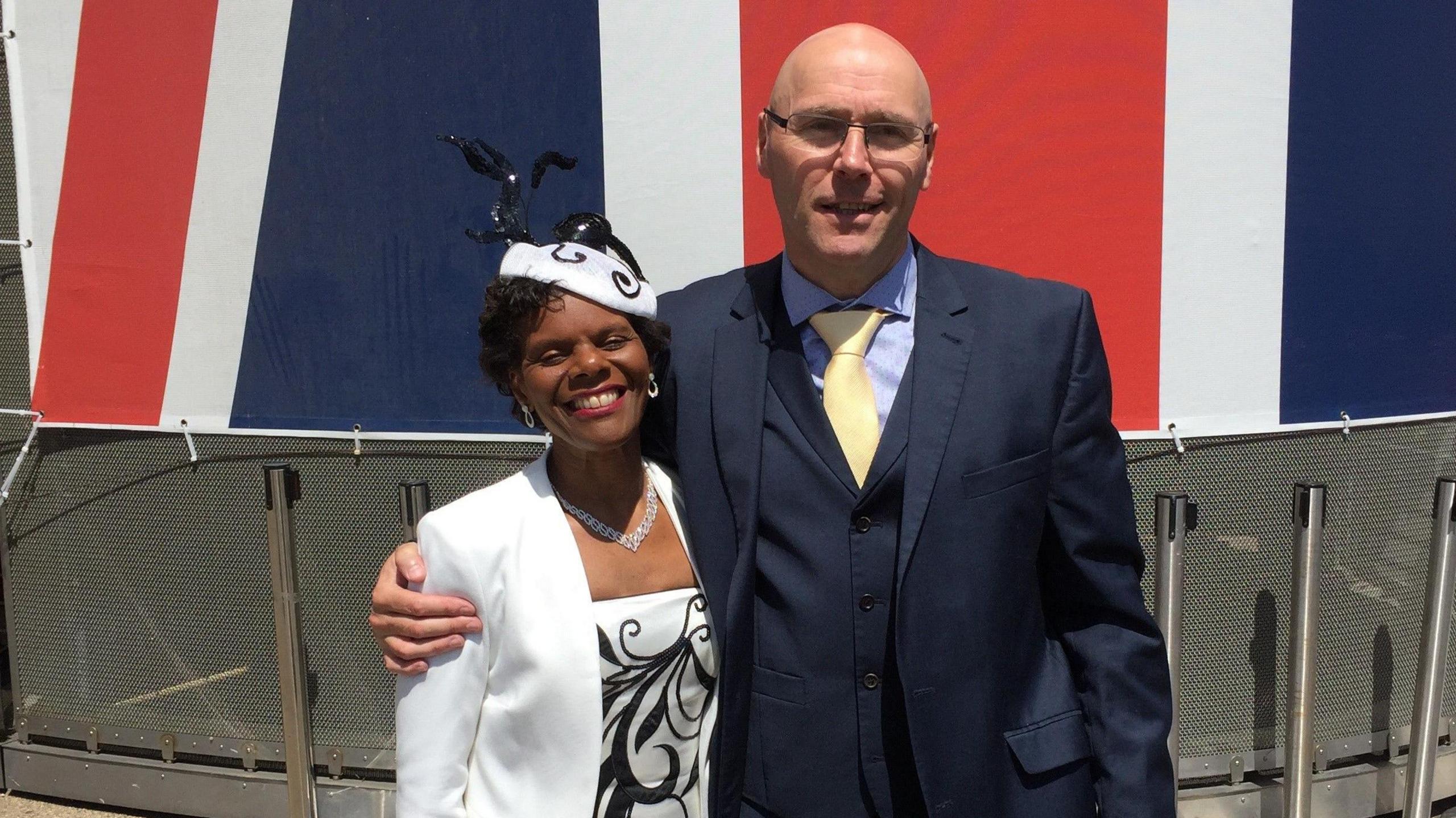
Stephen Smith married Marina in 2020
Mr Smith married his current wife Marina Smith in 2020.
She said: "I knew he was still grieving for his late wife, so I kind of accepted his quick temperedness, short fuse and being aggressive for things so trivial.
"Then, as the years went on, he'd say to me: 'I'm not normal, am I?' and I'd say: 'No, that's not the behaviour of a normal person'."
More than 40 years on from the first infections, the government inquiry is due to conclude on 20 May.
It is thought about 2,900 people have died as a result of infected blood so far, with more than 30,000 people infected.
People who were given infected blood are dying at a rate of one every four days,, external the Infected Blood Inquiry heard in April.
"We want to hear that we are getting our compensation, and all of us expect to get a letter of apology because we all deserve it; and the victims that have passed away, must never, ever be forgotten," Mr Smith added.
A government spokesperson said: "This was an appalling tragedy, and our thoughts remain with all those impacted.
“We have consistently accepted the moral case for compensation, and that’s why we have tabled an amendment to the Victims and Prisoners Bill which enables the creation of a UK-wide Infected Blood Compensation Scheme and establishes a new arms-length body to deliver it.
“We will continue to listen carefully to those infected and affected about how we address this dreadful scandal.”
Follow BBC Cornwall on X (formerly Twitter), external, Facebook, external and Instagram, external. Send your story ideas to spotlight@bbc.co.uk, external.
Related topics
- Published17 January 2024
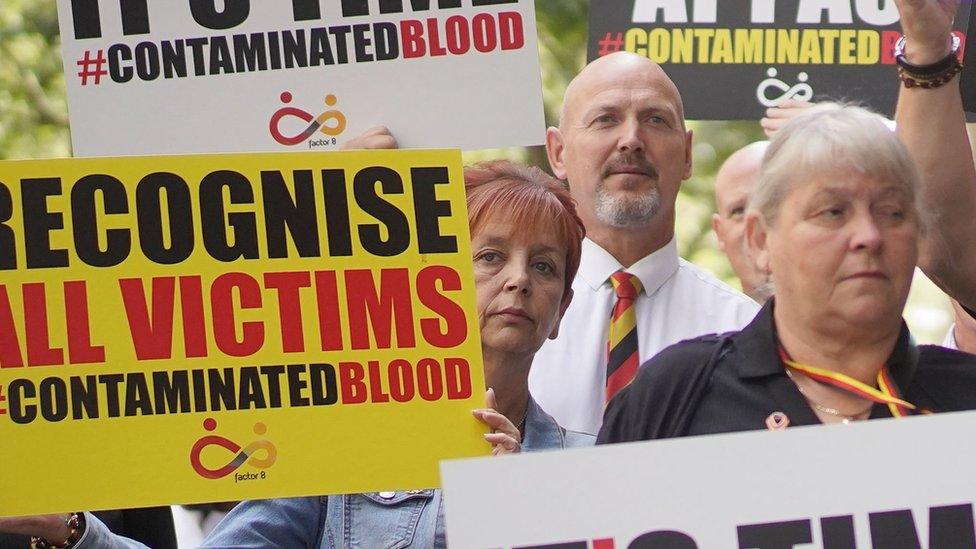
- Published5 December 2023
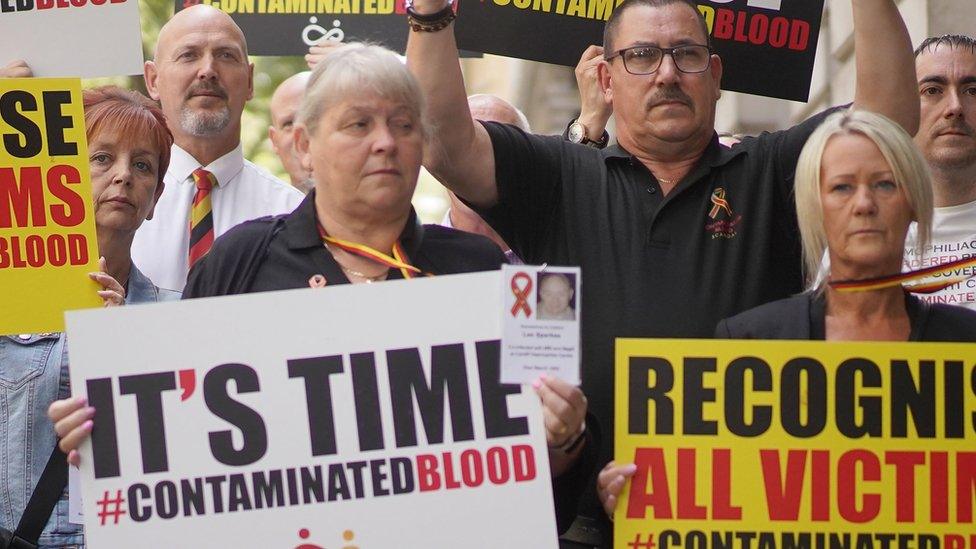
- Published5 December 2023
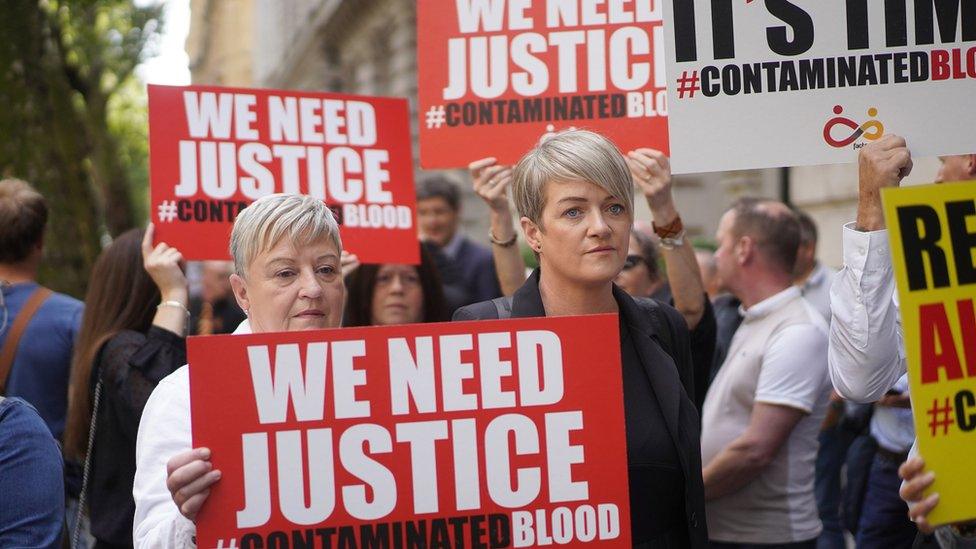
- Published28 July 2023

